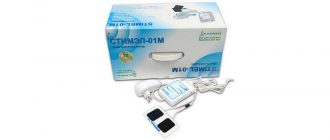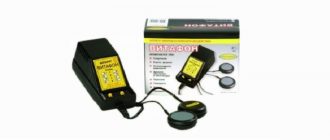Congestive prostatitis is formed due to non-infectious inflammation of the prostate gland. Poor circulation in the pelvis and congestion of the prostate can occur due to many factors. Complex therapy consisting of medications, physiotherapeutic procedures, folk and herbal medicines and preventive measures will help clear the prostate from stagnation.
Causes
Congestive chronic prostatitis is a common occurrence; it is diagnosed in 40% of cases of the total number of patients with prostatitis. The risk group consists not only of older men, but also of young people, although the likelihood of its occurrence increases with age.
Causes of congestive prostatitis in men:
- The most significant reason for the development of pathology is considered to be sexual acts without emptying prostatic secretions and interrupted sexual intercourse. In addition, too infrequent sexual intercourse, as well as too frequent after prolonged abstinence, will also negatively affect the proper functioning of the gland.
- Anatomical disorders of the veins or their poor condition (weak walls, blood clots, etc.) in the pelvic organs.
- Stagnation of seminal fluid in the prostate can also occur after any spinal injuries, spinal cord injuries and innervation disorders.
- Dysfunctions and abnormalities in the functioning and development of the bladder and intestines.
- Stagnation of blood in the prostate can occur due to a sedentary lifestyle.
- Various pathologies of the spine can lead to prolonged narrowing or dilation of blood vessels in the prostate gland, which can also cause stagnation of prostate secretions and an inflammatory process.
- The use of alcohol and tobacco products (especially in combination with a sedentary lifestyle) also leads to stagnation in the prostate gland.
- Frequent local or general hypothermia.
- Hormonal imbalances.
- Improper diet and regimen (especially fatty foods, small amounts of vegetables and fruits in the diet).
- With varicocele, varicose veins or hemorrhoids, the local temperature in the pelvis increases, which can also lead to blockage of the prostate.
Symptoms
Signs of congestive prostatitis are not characteristic, therefore they are unable to directly indicate this pathology. To identify pathology and make a diagnosis, you need to undergo a series of examinations. The following manifestations and symptoms of congestive prostatitis are possible:
- Periodic or constant pain in the groin, which can radiate to the anus and lower back. They tend to appear or worsen after prolonged periods of sitting or standing.
- Frequent urination, a small amount of discharge, a feeling of incomplete emptying of the bladder, painful sensations in the process.
- Weakening of erection, painful sensations during it or at the end of sexual intercourse, premature ejaculation.
- The appearance of blood in urine or semen.
Diagnostics
Congestion in the prostate is diagnosed using the following examinations:
- digital rectal examination of the prostate gland;
- rheography allows you to identify disturbances in the outflow of blood from the pelvic area;
- Ultrasound or TRUS;
- general urine and blood tests, possibly a 3-glass urine test, coagulogram and blood thromboelastography;
- bacterial culture and microscopy of prostate secretion (bacterial culture will show a negative result; microscopically, the content of leukocytes will show a normal value, but the number of flat epithelium and giant cells will be higher than normal).
Treatment
Congestive inflammation is curable if an integrated approach is taken and medical instructions are not violated. On the contrary, the lack of therapy or violation of instructions can lead to complications both in the prostate gland itself and in nearby tissues and organs.
It is customary to treat congestive prostatitis in men at home in a comprehensive manner, which includes:
- drug therapy;
- physiotherapy;
- herbal medicine and folk remedies;
- preventive measures.
Medication
A complex of various drugs is prescribed for treatment. This happens because in most cases the cause of the disease is not one factor, but several. The following groups of drugs are prescribed for prostate stagnation:
- Anti-inflammatory drugs (Acetylsalicylic acid, Trental, Aescusan).
- Anticoagulants.
- Painkillers (Curantil).
- Alpha adrenergic blockers (Phentolamine, Tropaphen).
- Hormonal drugs.
- Muscle relaxants.
- Preparations for strengthening the walls of blood vessels and improving blood circulation (Venoruton, Complamin).
- Vitamin complexes (Unicap, Pangexavit).
Physiotherapy
The following procedures will help remove congestion in the prostate:
- prostate massage;
- electrophoresis;
- ultrasound therapy;
- LOD therapy;
- acupuncture.
Their prescription depends on availability and the presence of contraindications, and is therefore selected by the doctor individually for each patient. Also, for congestive prostatitis, exercises to strengthen and relax the pelvic muscles are prescribed.
Herbal medicine and folk remedies
Treatment of chronic congestive prostatitis with traditional methods is carried out using the following plants and products:
- pumpkin (oil and seeds);
- parsley;
- walnuts with honey;
- herbal infusions (monastery tea and others).
All traditional methods of treatment are permissible only after consultation with the attending physician and his approval, because they can interfere with the main therapy or cause complications.
Prevention
As preventive measures it is recommended:
- regular sexual intercourse with a regular partner;
- maintaining an active lifestyle;
- proper nutrition (increasing the proportion of vegetables and fruits in the diet, reducing fatty foods);
- avoiding hypothermia;
- rejection of bad habits.



